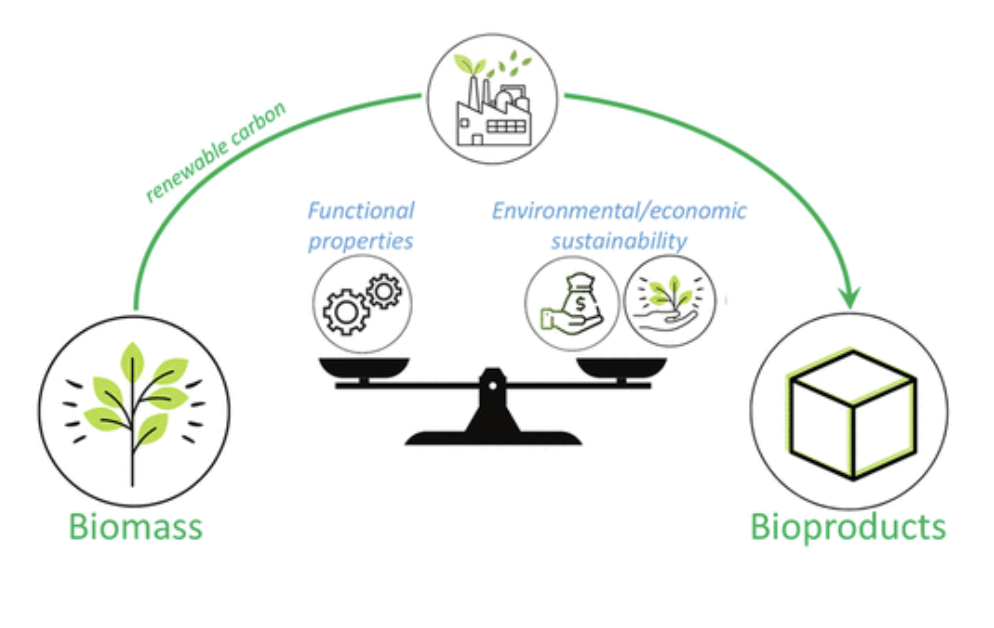
Synopsis
Bio-based products have potential to offer net environmental benefits that could be further maximized through mild top-down processing.
Decades of a linear production and consumption that utilize large amounts of fossil resources have placed our society at a crossroads. The Sixth Assessment Report by the Intergovernmental Panel on Climate Change (IPCC) indicates that the concentration of CO2 is the highest in at least 2 million years, sea level rise shows the fastest pace in 300 years, and the Arctic sea ice is at its lowest in 1000 years. (1) In this context, fossil fuels (coal, oil, gas) account for approximately 90% of all CO2 emissions. (2) Such carbon emissions not only increase the global temperature but also the acidity levels in our oceans, thereby jeopardizing life. With the projected growth of carbon embedded in chemicals and derived materials from 550 Mt to 1150 Mt between 2020 and 2050, it is evident that our society requires drastic changes in our production and consumption patterns. (3)
Limiting the extraction of fossil carbon from the ground that eventually reaches the atmosphere is emerging as a key strategy in the materials and chemicals sector.